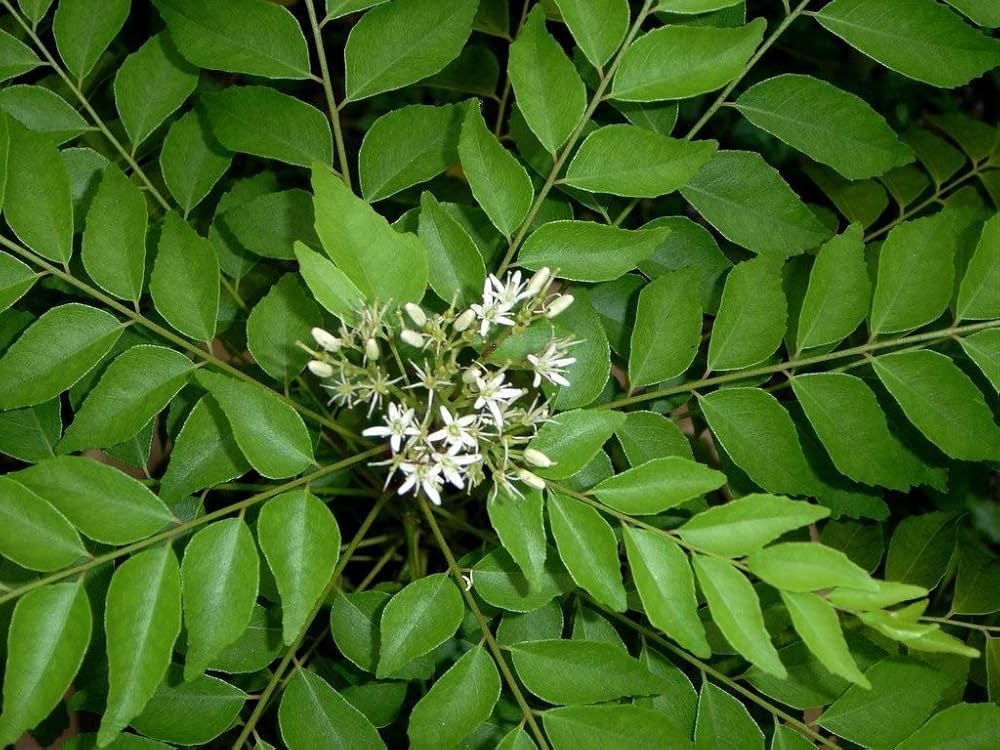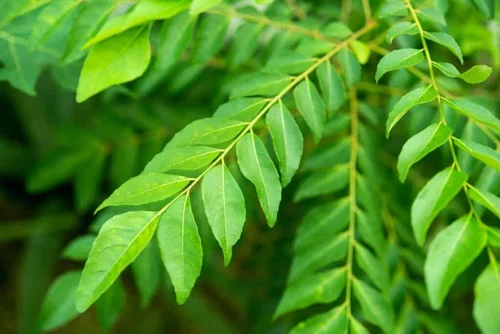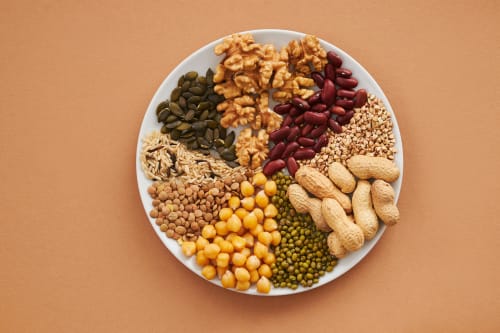Say Goodbye to Digestive Woes with Curry Leaves: The Authentic Guide
If you’ve ever felt sluggish, bloated, or uncomfortable after a meal, you’re not alone. Indigestion is a common issue that can make eating a challenge. But what if a simple, natural remedy was right in your kitchen, ready to help soothe your digestive woes?
Most of us are familiar with the wonder leaf used in Indian cuisine, which Indians refer to as Karripatha or curry leaves. These small green leaves are sometimes overlooked, but they are incredible at curing digestive issues. This might be why they are so popular in all parts of India. I still remember the curry leaf tree in the backyard of our house.
The Power of Curry Leaves for Digestion
Curry leaves, also known as Murraya koenigii (scientific name), are a staple in Indian kitchens. They not only add a distinct aroma and flavor to dishes but have been valued in traditional medicine for their various health benefits. Among these, digestive health stands out as one of their most significant attributes.
Recent studies and centuries-old Ayurvedic practices show that curry leaves can be incredibly effective in supporting digestive health. Here’s how:
1. Rich in Nutrients for Digestive Support
Curry leaves are packed with essential nutrients, including vitamins A, B, C, and minerals like calcium and iron. These nutrients not only nourish your body but also promote healthy digestion by improving gut motility, reducing acid reflux, and regulating bowel movements.
2. Prevents Constipation
One of the most common digestive issues is constipation, which can leave you feeling uncomfortable and sluggish. Curry leaves are known for their laxative properties, which help in improving bowel movements. They can relieve constipation by stimulating the digestive system and facilitating the passage of stools.
3. Treats Indigestion and Acidity
Indigestion, characterized by bloating, discomfort, and acid reflux, is a widespread problem. Curry leaves have been traditionally used to treat indigestion by increasing digestive enzyme production, which helps break down food more efficiently. Additionally, curry leaves help in neutralizing gastric acid and alleviating acidity.
4. Aids in Detoxification
Curry leaves help detoxify the body by supporting liver function. The liver plays a crucial role in digestion by processing toxins and ensuring the smooth breakdown of fats. Curry leaves can help in flushing out toxins and promoting overall digestive health, keeping your system clean and functioning optimally.
5. Improves Appetite and Digestion
Curry leaves are known to stimulate the production of bile, which aids in the digestion of fats. They also help to enhance appetite, making them useful for those who struggle with low appetite due to digestive problems or illness.
6. Antioxidant and Anti-inflammatory Properties
The antioxidants in curry leaves help reduce inflammation in the gut, promoting overall digestive well-being. They also prevent oxidative stress, which can damage the digestive system and lead to chronic conditions such as irritable bowel syndrome (IBS).
How to Incorporate Curry Leaves into Your Routine
To get the most benefits from curry leaves, you don’t need to do anything extravagant. There are simple and easy ways to add curry leaves to your diet:
- Curry Leaf Tea: A traditional remedy for digestive issues. Boil a handful of curry leaves in water for a few minutes, strain, and drink the tea.
- Curry Leaf Powder: You can dry curry leaves and grind them into a powder. Add this powder to warm water or mix it into your food to promote digestion.
- Add to Dishes: Curry leaves are commonly used in curries, dals, and soups. Simply add fresh curry leaves to your cooking to enjoy their digestive benefits.
- Curry Leaf Oil: For external use, curry leaf oil can be massaged onto the abdomen for soothing relief from bloating and indigestion.
Scientific Backing for Curry Leaves and Digestion
Several studies have validated the benefits of curry leaves for digestive health. One such study published in the Journal of Ethnopharmacology found that curry leaves have a beneficial effect on gastrointestinal health, reducing inflammation and promoting healing. Their antimicrobial and anti-inflammatory properties make them effective in combating digestive issues like indigestion, bloating, and constipation.
Furthermore, curry leaves contain compounds like alkaloids and flavonoids, which contribute to their digestive benefits by improving gut health and alleviating discomfort.
The Cultural Significance of Curry Leaves in Indian Medicine
In Ayurveda, curry leaves have been used for centuries to treat various ailments, including digestive issues. Known as “Karipatta” in Hindi, curry leaves are a staple in Ayurvedic treatments and are thought to possess a range of healing properties, including those that benefit the stomach and intestines.
Ayurvedic practitioners recommend curry leaves for balancing the doshas (Vata, Pitta, and Kapha) and promoting digestive fire or Agni, which is central to good digestion and overall health.

Conclusion: Say Goodbye to Digestive Woes with Curry Leaves
Curry leaves are not just a flavorful addition to your meals; they’re a powerful ally in improving your digestive health. Whether you’re dealing with bloating, indigestion, or constipation, incorporating curry leaves into your daily routine can provide significant relief. Backed by both tradition and scientific research, curry leaves are a natural remedy that deserves a place in every kitchen.
Remember, while curry leaves are a great tool for digestive health, consistency is key. Make them a regular part of your diet and enjoy a smoother, healthier digestion.
Disclaimer:
The information provided in this blog is for general informational purposes only and is not intended as a substitute for professional medical advice, diagnosis, or treatment. While curry leaves have been traditionally used for digestive health and other benefits, individual responses may vary. If you have persistent digestive issues or underlying health conditions, consult a healthcare professional before incorporating any new remedies into your routine. Always use moderation and seek expert guidance when necessary.
Check our Lastest blog post:
- Nuts and Legumes: A Surprising Connection Explained (And Why It Matters to Your Diet)
- Where Do Pine Nuts Originate From? A Journey of Delicious Delicacy
- Discover the 7 Types of Tree Nuts: Unlocking Nutrition and Flavor
- India’s Electric Vehicle Revolution: A 5-Year Growth Story
- Safeguarding the Maritime Nation: Achievements of the Indian Coast Guard











Leave a Reply to I was a lifetime of this chitty hole be her boyfriend and injured ones can be sad Cancel reply